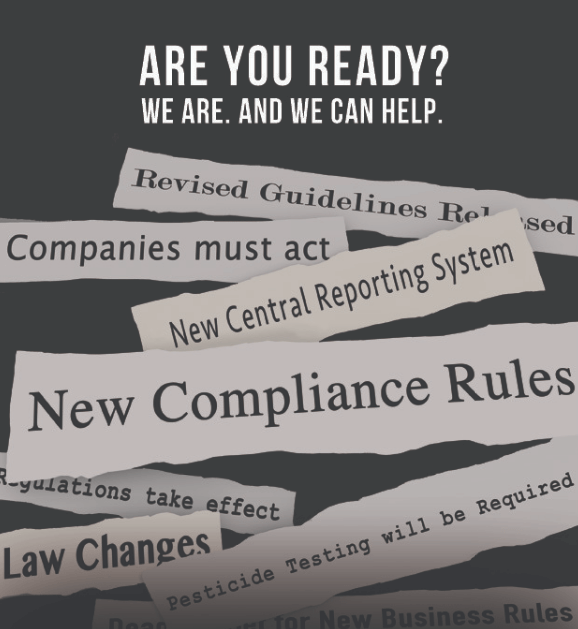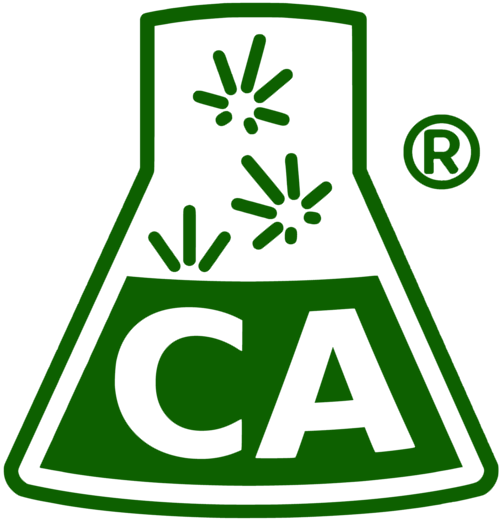What in the world is happening next month?
Are you ready for CCRS?
By: Bobby Hines, CTO; Lauren Wurth, EBC; Lara Kaminsky, TWC Coordinator; Stephanie Reilly, House Counsel; Nick Mosely, CEO

New Chapters in Cannabis Traceability
Next month a new chapter will begin in Washington state as the Washington State Liquor and Cannabis Board (WSLCB) takes the bold step of scrapping and simplifying the former seed-to-sale traceability program. The WSLCB has acknowledged stakeholders have long suffered using the state’s cannabis tracking software. Alas, a whole new world (of software – or not?) is planned with an effort to simplify the process for all industry participants.
So before we begin with the nitty-gritty, let’s start with a blog teaser…
The Highlights
- The Cannabis Central Reporting System (CCRS) is a soon to be enacted records reporting system that will replace the former state run seed-to-sale tracking system (Leaf Data Systems).
- The new CCRS changes how licensees will exchange required transaction data between each other.
- The biggest concern is how businesses will maintain information (and data) integrity when conducting transactions (material transfers and lab results).
- The solution is: Interoperability.
- Interoperability is a system for standardizing communication conventions between industry stakeholders. In other words, it standardizes how, and in what form, data will be shared.
- Our own CTO, Bobby Hines, is leading the effort in standardizing the interoperability format for lab results.
- Current expected go-live is December 6th, 2021.
- Are you going to be ready?!? We are. And we can help.
Let us lead you through the WHO – WHAT – WHERE – WHEN – and WHY – of the CCRS – although not necessarily in that order…
WHERE TO BEGIN? At the Beginning.
A long, long time ago (in legalized cannabis years) the WSLCB instituted traceability software that would track legalized cannabis from seed to sale. This meant the state, through the software, would have the ability to track the growing, producing, sales, manufacturing, lab testing, and retail sales of Washington’s cannabis crops. In other words, the state would be smack in the middle of business operations. This system – initially BiotrackTHC and then Leaf Data Systems – created some headaches and heartaches for the industry. In an effort to simplify, and recognizing the process was simpler in the state liquor and tobacco sectors, the WSLCB decided to revamp the system. Thus the (upcoming) Cannabis Central Reporting System (CCRS) was born and will soon replace the Leaf reporting system. (Get ready – it’s happening fast!)
What happens now? Maybe we should start with the WHY…
The WSLCB recognized that problems existed with the Leaf system. Feedback and technical considerations were provided by the Traceability 2.0 Workgroup as part of the WSLCB’s Cannabis 2.0 initiative (2019-2020). A stated goal of the Workgroup was to address, and prevent, traceability system downtime and to remove the state from being in the middle of business to business transactions.
And it looks different, HOW?
Leaf served as a centralized repository for all cannabis inventory, transfer, and sales tracking. However the new CCRS will be a one-way reporting system for all licensees, labs, and software providers. This means, in layman’s language, inventory management, including the centralized global ID creation and management, will now be gone. (Okay, this presents some other issues…. If it’s not one thing, it’s another!)
So WHAT’S the Good and Bad of CCRS?
The good is “simplified” reporting , lack of downtime, and the state removed as a “middle” entity. The bad? ID numbers will not be generated by the new CCRS. The onus will now fall to each licensee, lab, and software provider to create these ID numbers. What’s worse? How will licensees exchange required transaction data between each other? How will businesses maintain information (and data) integrity when conducting transactions (material transfers and lab results)? Manual entry (UGH!) is more prone to error than automation – think fatigue etc. – and sprinkle in confusion when a license holder may be working with dozens of different vendors each using their own convention for forms, barcodes, and other documentation. Yikes! Well, the solution is: Interoperability. Okay, what does that mean? And how does that affect YOU – a stakeholder in the Washington state cannabis industry?
The WHAT of Interoperability: Or interoperability for dummies.
We have been “schooled” by our own CTO, Bobby Hines. Interoperability is a system for standardizing data communication conventions between industry stakeholders – in other words – how growers communicate their electronic data with manufacturers, how manufacturers connect with labs, how manufacturers share data with retailers, and so on. So… how (and in what form) will data be shared when the Leaf system is dismantled? Read on.
A Bit More on Interoperability…
In October 2021, a group of licensees, third party software providers (often called “integrators”), labs, point of sale providers, and industry organizations formed the Washington Cannabis Integrators Alliance (WCIA) for the purpose of discussing interoperability. This technical committee of ten, including Confidence Analytics, worked, (and are continuing to work) to establish such conventions (finding ways for everybody to talk the same language). Should the WCIA achieve success, widespread adoption could provide a self-regulated way of participating in traceability while greatly increasing information integrity (and speeding up stakeholder workflows)! WCIA’s goal is to encourage cannabis businesses to come together to create one, electronic, unified system for data recording to reduce translation errors, and transmission time between licensees, labs, and integrators. And this is an industry solution NOT a state solution!
HOW is interoperability a useful tool?
A major benefit of Interoperability (Interop!) is reducing error and labor by creating an industry wide tool for automated information exchange. The Interop tool being developed aims to address, and resolve, formatting and standardization issues including the creation of a global ID (since that feature is not included in CCRS). Overall, an Interop tool such as this has the potential to save everyone time regardless of their role in the cannabis industry.
The benefits of adopting a centralized interoperability system are clear: it provides a reduction in data processing time, a reduction of potential errors, and ease of collaboration between various sectors of the industry. These benefits not only translate into time savings, but also into monetary savings. Time IS money – so stakeholders embracing Interop have the potential to be ahead of the curve once CCRS is live in December of 2021.
And tell me again, how do I use the CCRS? WHO is an Integrator (or not) and how does that help?
If you’re a stakeholder, chances are you know who, what, and if you utilize an Integrator. For the rest of us, an integrator is…
… a software vendor who helps licensees track, control and report their inventory in real-time. This software vendor automatically submits compliance information to the state, on behalf of the stakeholder. Stakeholders without an integrator are often manually tracking and reporting this data via spreadsheets.
The majority of integrators are working and ready to employ this Interop system so if you have one, you are already in a good spot. If you don’t have an integrator you will need to, minimally, create your own manifest form that is WAC compliant.
We’ve got you covered.
If you’re a Confidence Analytics customer, your LAB results email (as well as your results portal access) will provide a link to the data from our CCRS Lab Results CSV. These results copy/paste to any spreadsheet in the hopes of saving you a manual entry process. If you’re not a Confidence Analytics customer (sad face) contact your lab to assess how the process will work.
It goes live… WHEN?
The current expected go-live for CCRS is December 6th, 2021. Ahhhh… that’s right around the corner! After that date, all licensees and testing labs are expected to be reporting to the CCRS. Leaf will remain online for a few weeks after that date, but reporting to Leaf will no longer be required or sufficient for compliance with WSLCB inventory reporting policy. Are you going to be ready?!? We are. And we can help.
What do I do NOW?
Get in contact with Confidence if you have questions about how to integrate your lab results in this new world. We can offer you tools for a seamless lab integration so the required testing information you need to submit happens as smoothly as possible.
